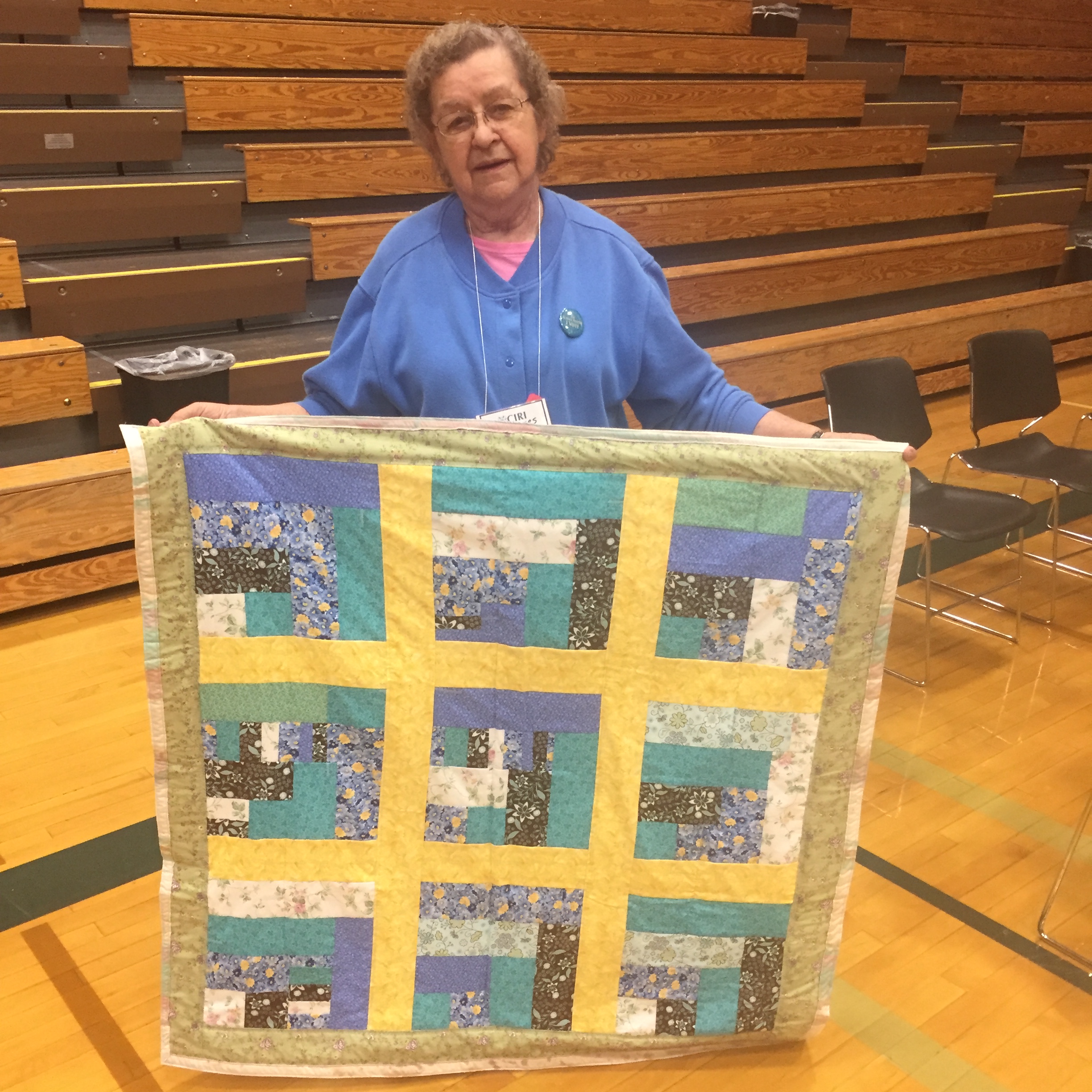
Honoring those who have passed on is a labor of love for CIRI shareholder Erma Syers. At this fall’s Northwest Friendship Potlatch, Syers proudly displayed a quilt stitched together from pieces of cloth collected from nearly a decade’s worth of Athabascan Memorial Cloth Ceremonies.
“I’ve been sewing since I was a teenager,” Syers said. “This quilt is a way to honor those who are gone.”
Cloth ceremonies were traditionally held during funerals or memorial potlatches. Today, they are held at each of the annual CIRI and The CIRI Foundation Friendship Potlatches to celebrate community, unity and cooperation.
Potlatch hosts prepare for a cloth ceremony by splitting a bolt of cotton cloth in four strips and then sewing them into a continuous cloth circle. The ceremony begins when guests gather into a circle in a large open area. The guests hold on to the cloth and share traditional prayers, memorial songs or remembrances of loved ones who have passed away. The ceremony concludes when the cloth is cut or torn into individual pieces that each guest keeps as a symbol of unity and his or her participation in the act of togetherness.
Growing up in Hoonah, Syers learned to sew on a manual Singer sewing machine. “We had a generator, but no electricity,” she recalled. “My mother later retrofitted it for electricity.”
Syers’s childhood memories include a disastrous fire in June 1944 that destroyed much of Hoonah, including many homes. She was educated in a two-room schoolhouse designated for non-Natives. “It was segregated back then,” Syers said. “My mom was a ‘half-breed’ – that’s what it said on my birth certificate – of Tlingit descent, but my father was a full-blooded Swede, so I didn’t get sent away to the federal BIA (Bureau of Indian Affairs) boarding school. But I never really learned the Native language or traditional ways because we were segregated. It’s a shame. Even today, I know very few words.”
When Syers was 12, her father was killed in a plane crash outside Ketchikan. The devastating blow was softened somewhat by the family’s ability to maintain a sufficient standard of living. “My mom worked, and we had a house. My grandfather owned the town general store, so there was some property there. And at that time you could purchase insurance when you were flying, so that helped.”
Syers’s mother, CIRI shareholder Ione Hillman Felton Chaney, remarried in 1949 when Syers was 14, and the family moved to Anacortes, Wash. Syers married right out of high school and had eight children over 11 years. Her husband passed in 1980. Syers presently resides in Elma, Wash., a city 30 miles west of Olympia.
In addition to spending time with her children and their families, many of whom reside in Washington, Syers is active in her church, quilts, knits and crochets, and belongs to two bowling leagues. To bring comfort and warmth to patients, she donates many of her quilts and afghans to local hospitals and medical centers. And Syers diligently reads her CIRI Raven’s Circle and Southcentral Foundation Anchorage Native News newsletters. “It’s been a blessing to continue to share in these histories,” she said.
Quilted wall hanging at Cook Inlet Tribal Council
A quilted wall hanging created by artist Sherry Perry lives under glass at CIRI-affiliated nonprofit Cook Inlet Tribal Council. The hanging was made from pieces of cloth collected by CIRI shareholder and Board member Patrick Marrs at the Athabascan Memorial Cloth Ceremonies held at CIRI and The CIRI Foundation’s annual Friendship Potlatches between 1985 and 2007.



